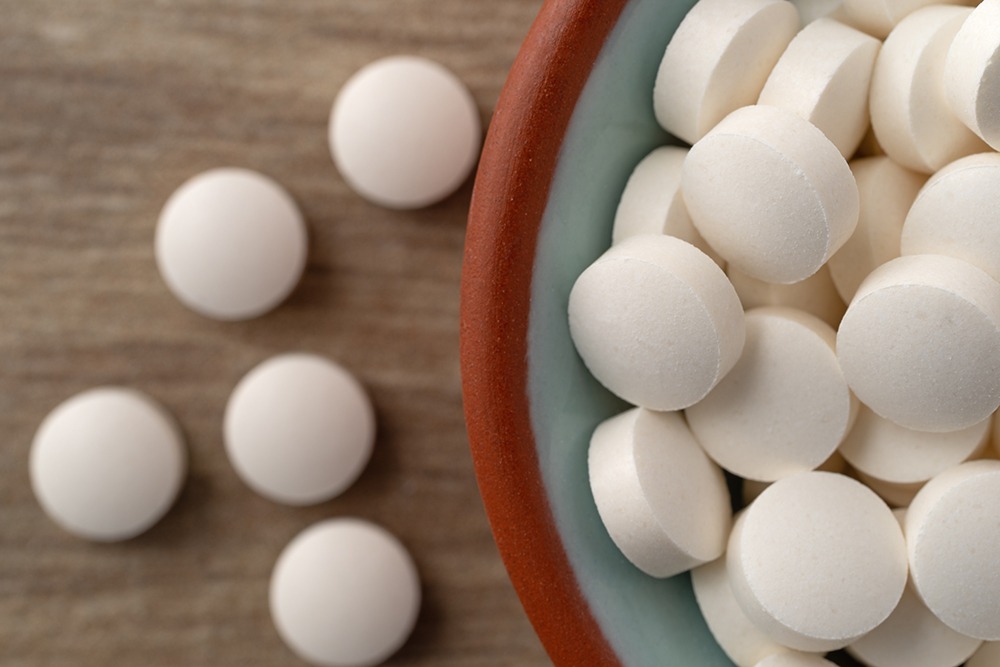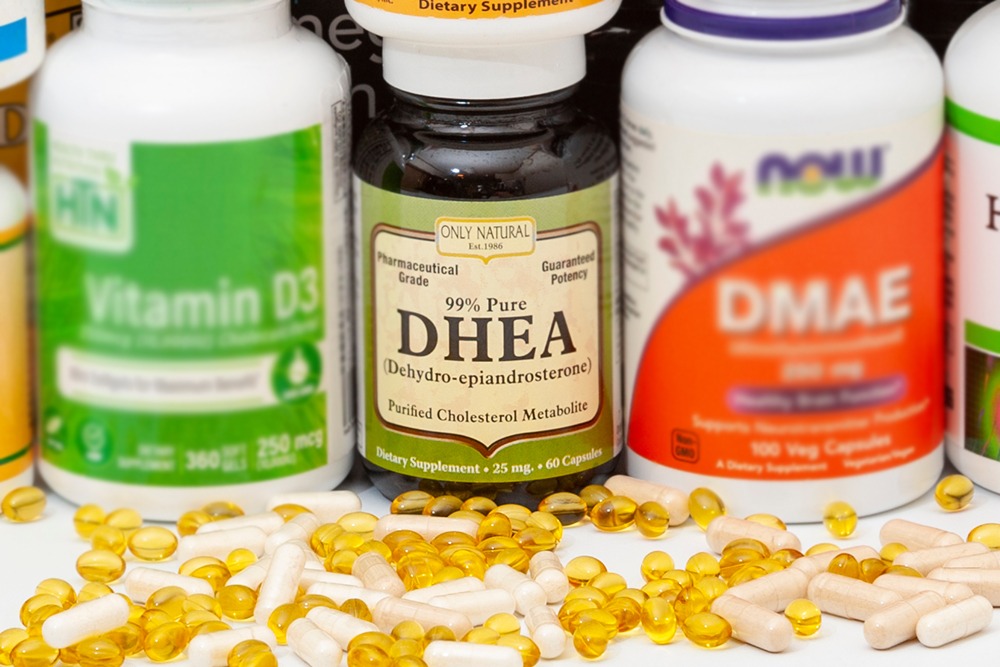UPDATED: December 19, 2023
While DHEA is allowed in the U.S. in both medications and over-the-counter supplements, it is considered a prohibited anabolic agent in sport. Athletes should be mindful that DHEA has limited medical purposes, and despite being allowed in dietary supplements, there is no evidence that DHEA supplements are a safe or effective treatment for any disease.
Here’s everything athletes need to know about DHEA.
What is DHEA?
 Dehydroepiandrosterone (DHEA), also called Prasterone and 3β-hydroxyandrost-5-en-17-one, is a steroid hormone primarily produced by the adrenal gland, but also made in small quantities in the gonads and brain. DHEA is a precursor molecule for the creation of other sex hormones, including testosterone and estrogen. Natural levels of DHEA in the body peak in early adulthood and then decline with age.
Dehydroepiandrosterone (DHEA), also called Prasterone and 3β-hydroxyandrost-5-en-17-one, is a steroid hormone primarily produced by the adrenal gland, but also made in small quantities in the gonads and brain. DHEA is a precursor molecule for the creation of other sex hormones, including testosterone and estrogen. Natural levels of DHEA in the body peak in early adulthood and then decline with age.
In addition to the body’s natural production, DHEA can be made synthetically in a laboratory. The synthetic version is sold as a tablet, capsule, powder, topical cream, or gel in supplements or as a medication called Prasterone.
Since the DHEA precursor diosgenin is also found in soy and wild yams, these foods are sometimes advertised as a natural source of DHEA. However, the conversion of diosgenin into DHEA is not believed to occur in the body, so consuming wild yam or diosgenin is unlikely to increase DHEA levels.
In almost all countries except the U.S., DHEA is treated as a controlled anabolic steroid. In the U.S., DHEA is exempt from the Controlled Substances Act, which means it is treated differently from other steroids. DHEA is also allowed in dietary supplements by the Food and Drug Administration (FDA).
Is DHEA prohibited in sport?
Yes, DHEA is prohibited at all times, both in and out of competition, under the category of Anabolic Agents (S1) on the World Anti-Doping Agency Prohibited List.
What is DHEA used for?
In the U.S., a prescription vaginal suppository form of Prasterone (DHEA medication) is used to treat some of the symptoms of menopause. There are currently no other FDA-approved clinical uses for DHEA. DHEA can be used in compounded medications as well.
 It is very important for athletes to realize that, aside from the one prescription medication available in the U.S., all other DHEA products are manufactured outside of drug regulations and could contain varying levels of DHEA. Although DHEA is included in some dietary supplements, the efficacy and safety of those products have not been established for diagnosing, curing, mitigating, treating, or preventing any disease.
It is very important for athletes to realize that, aside from the one prescription medication available in the U.S., all other DHEA products are manufactured outside of drug regulations and could contain varying levels of DHEA. Although DHEA is included in some dietary supplements, the efficacy and safety of those products have not been established for diagnosing, curing, mitigating, treating, or preventing any disease.
Despite this, DHEA is advertised for the treatment of all kinds of conditions, including anorexia, “diminished ovarian reserve,” adrenal fatigue, exercise-induced muscle damage, major depressive disorder, metabolic syndrome, hormone replacement therapies, fatigue, weight loss, and many other conditions. There is insufficient evidence that DHEA is a safe or effective treatment for any of these conditions.
Regardless of how or why it is used, DHEA is still prohibited at all times for all athletes, even if it is prescribed by a doctor and regardless of whether it is natural or synthetic. To learn more about the use of DHEA in hormone replacement therapies, read about Wellness and Anti-Aging Clinics.
Is it ok to use DHEA supplements?
No. Athletes should not use DHEA supplements because DHEA is prohibited at all times, even if it is consumed through a dietary supplement. Because DHEA is accepted by the FDA as a legitimate dietary ingredient, DHEA is by far the most common prohibited anabolic agent found in dietary supplements. There are many bodybuilding, hormone “boosting,” and energy supplements that contain DHEA, and there are many prohibited compounds related to DHEA that are prohibited and should be a warning sign to athletes:
- Androstenolone
- 7-keto-DHEA
- 7-hydroxy DHEA
- 1-DHEA (also called 1-androsterone)
- 4-DHEA
- 19-nor-DHEA
- 5-DHEA
There are more than 150 supplements on the Supplement Connect High Risk List that contain, or claim to contain, one or more forms of DHEA. Sometimes the presence of DHEA in the product is not obvious. For example, there is a women’s vitamin multi-pack on the High Risk List that appears to be simple vitamins, but one of the pills actually contains DHEA.
Athletes have tested positive for and have been sanctioned due to the use of supplements containing DHEA. Athletes need to be very careful when using dietary supplements.
Are there side effects associated with DHEA?
Yes, since DHEA is an androgen it can cause many of the same side effects as other male hormones. These side effects may be more pronounced in females. Side effects include growth of facial hair and loss of scalp hair, acne, deepening of the voice, and rising blood pressure, among other side effects. DHEA can also be converted to estrogen in the body, so there’s increased risk of hormone-sensitive cancers, such as breast, ovarian, and prostate cancers.
Can I get a Therapeutic Use Exemption (TUE) for DHEA?
There are a few situations in which an athlete may qualify for a TUE for DHEA, including postmenopausal women who require the use of a Prasterone suppository and women with primary adrenal insufficiency who have significantly impaired mood despite optimal glucocorticoid replacement. All TUE applications will be evaluated according to strict criteria under the International Standard for TUEs (ISTUE).
More questions?
For questions about specific products, substances, and methods, contact USADA’s Drug Reference Line at drugreference@USADA.org or call (719) 785-2000, option 2.
Read more Spirit of Sport blog posts



